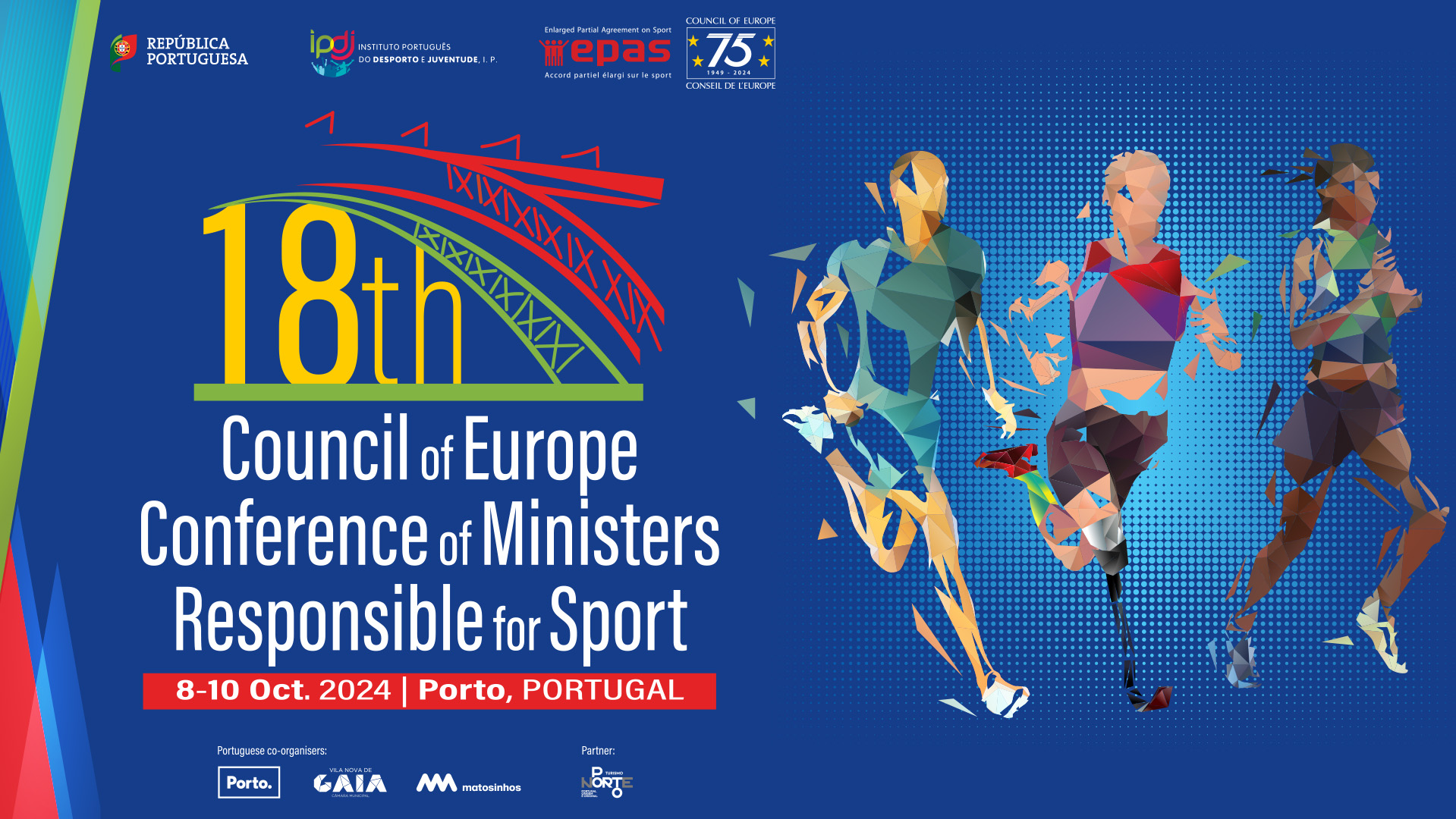18th Conference of Ministers Responsible for Sport – Themes
“Governing and governance in sport: supporting a fresh approach to match its societal importance”
The role of sport in our modern societies is important, taking into account its social, educational, recreational, cultural, health-promoting and economic functions.
Between sport practitioners and spectators, sport touches a high portion of the world's population. Globally, the role of sports in society has been increasing in economic value, and this rise in its popularity has brought with it increased financial, structural, organisational, and human resources, presenting new challenges, and sometimes threats, to the promotion of values-based and democratically governed sport.
This leads to a need to rethink the way public authorities and the sports movement co-operate, while also guaranteeing a governance model that meets the needs and rights of athletes and other sports stakeholders, spectators and civil society.
The sustainability and societal value of sport relies on governments, other public authorities and sports organisations adopting new inclusive approaches and good governance practices, strengthening their structures, and maximising the use of their resources in a collaborative, multi-level approach (from grassroots to elite).
These questions will be addressed in two sessions of high relevance to Ministers responsible for sport:
- Session I - Collaborative governing: time to adapt the rules of the game?
- Session II - Good governance: moving the goal post forwards?




